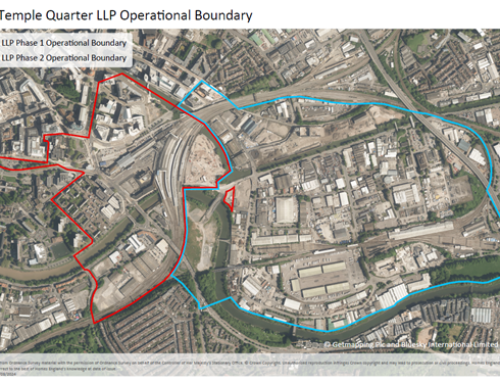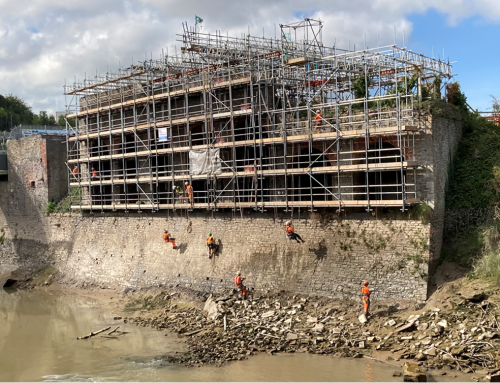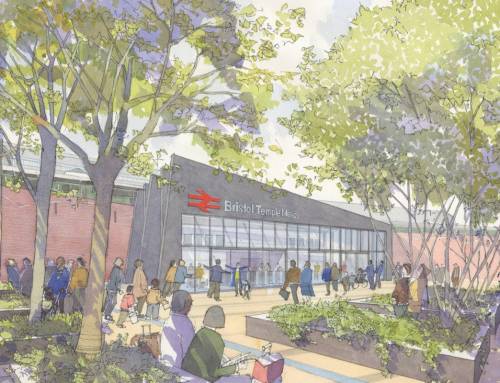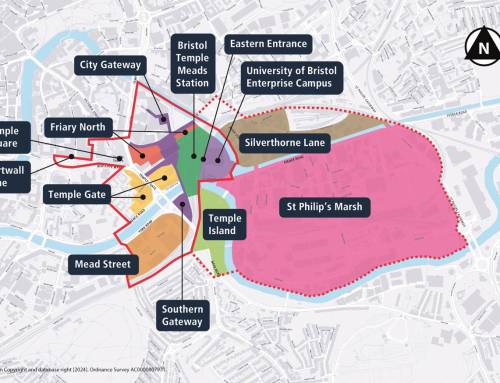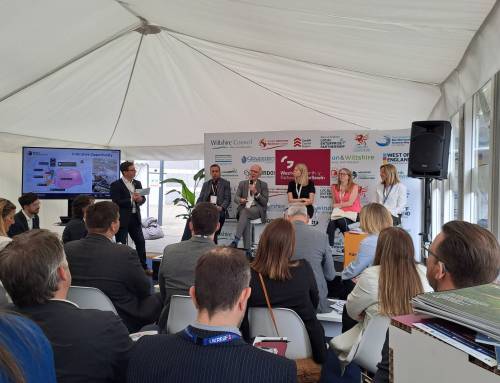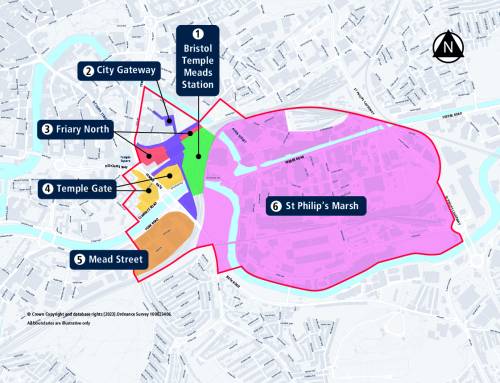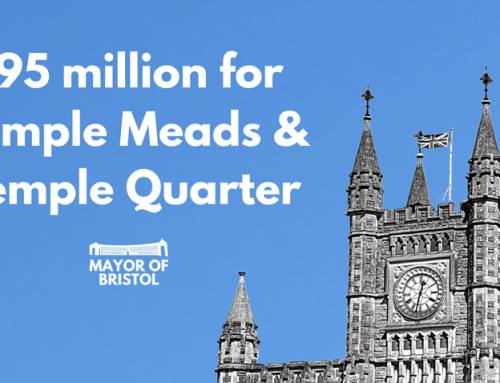Temple Studios, sitting adjacent to Temple Meads railway station, opened in May 2013. A workspace primarily targeted at creative and digital businesses, it’s a striking development based in what used to be a postal sorting office. This is where HAB Housing, an innovative housing firm conceived of by Grand Designs’ Kevin McCloud, chose to base their first studio. We thought it was time to get to know the business a bit better.
Business age: 8 years
Number of employees: 8-10 in the core business
Length of time in the Enterprise Zone: About a year, but the office at Temple Studios is our first. Before this, we were a virtual business, working out of a range of business hubs, restaurants and cafes. We had a system that worked quite well but found that the growth of the business meant we needed a physical premises.
Why did you choose Temple Studios? We chose Bristol because of its strong reputation for environmental businesses; it seemed like a natural destination. We’d looked for a spot for a while and, one day, a colleague was walking past Temple Studios, stuck their head in and they just happened to have one ideal unit available.

HAB staff planting seeds outside their studio
How would you describe HAB to someone who’s never heard of it? We build houses – we find land, get planning permission, build homes and sell them. We’re trying to reintroduce design quality to new housing in the UK, and to put people at the centre of the process, allowing them to design the house that they want to live in.
What was the motivation behind setting up HAB? The company was conceived of by Kevin McCloud and our design director, Isabel Allen, as a result of their distress at the quality of poor new builds in the UK. The company aims to address this market failure by focussing on three main issues: design quality, sustainability and community.
Tell us more about your focus on sustainability and community. We don’t have a conventional approach to sustainability. We don’t just focus on hard-edge metrics about carbon reduction and the like but adopt a more holistic approach in line with the One Planet Living principles, focussing on things such as biodiversity, health and wellbeing. We’re committed to ensuring that our homes are economic and efficient to run.

The Triangle, one of HAB’s projects in Swindon. Photo copyright Paul Miller
When it comes to community, we always try to incorporate community structures and shared spaces, such as gardens, into our projects. This is something that was historically a feature of house building in the UK, but which has been somewhat lost recently.
You say you have a ‘collaborative relationship with investors and customers’. What does this mean? Initially, HAB had a traditional company set-up with regard to its finances, funded primarily by the bank. We found that this impacted our ability to do everything we wanted to do, and chose to adopt a different approach to investment.
In 2013, we decided to ask lots of people for investment rather than one bank and, in doing so, set the world record for crowd-funding. We received £2m worth of investment and got 650 new investors, many of those landowners who had ideas for projects we could work on. Some of those projects have now come to fruition.
What are HAB’s plans for the future? As part of the crowd-fund, we had to clearly state a detailed business plan. A key goal is to be building towards 1,000 houses a year by 2019. We also aim to be in the top 10-15 of house builders by volume in the country by the 2020s.

HAB’s Applewood deveopment in Stroud. Photo copyright Timothy Soar
Describe the business in 3 words. Happiness, Architecture, Beauty – of course.
For further information about HAB, please see their website and follow them on Twitter and Pinterest.

